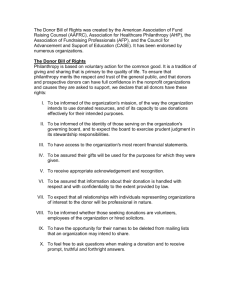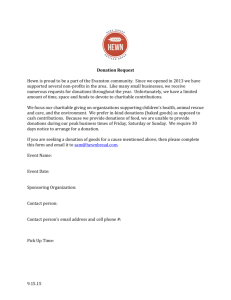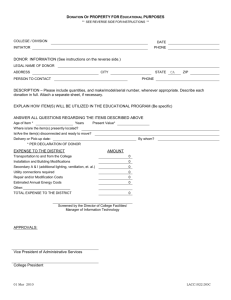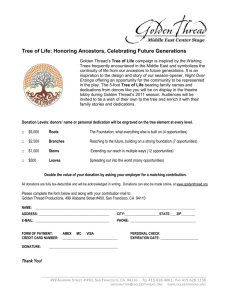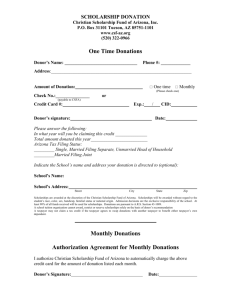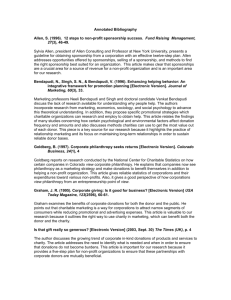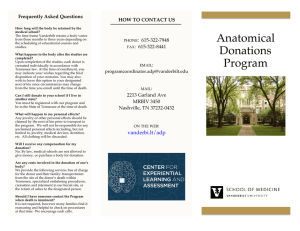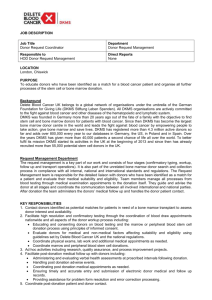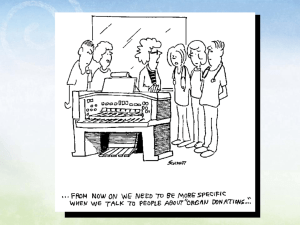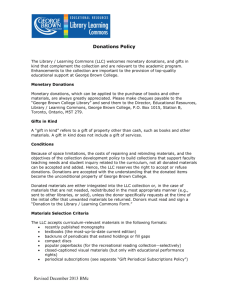How to get donations for lab equipment
advertisement
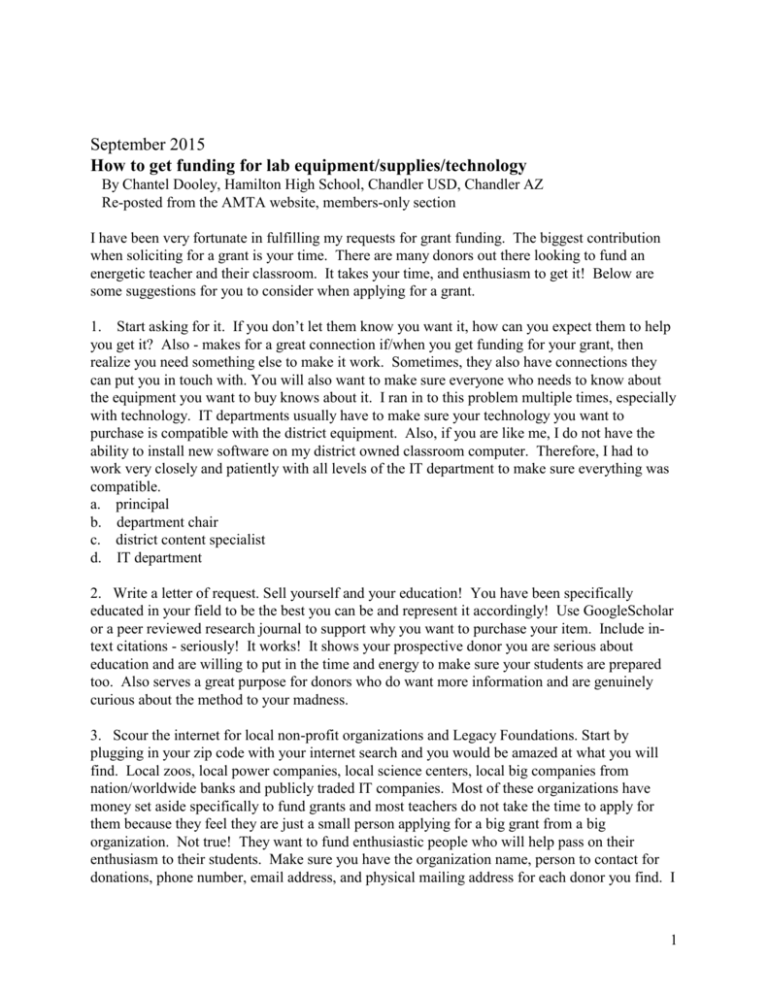
September 2015 How to get funding for lab equipment/supplies/technology By Chantel Dooley, Hamilton High School, Chandler USD, Chandler AZ Re-posted from the AMTA website, members-only section I have been very fortunate in fulfilling my requests for grant funding. The biggest contribution when soliciting for a grant is your time. There are many donors out there looking to fund an energetic teacher and their classroom. It takes your time, and enthusiasm to get it! Below are some suggestions for you to consider when applying for a grant. 1. Start asking for it. If you don’t let them know you want it, how can you expect them to help you get it? Also - makes for a great connection if/when you get funding for your grant, then realize you need something else to make it work. Sometimes, they also have connections they can put you in touch with. You will also want to make sure everyone who needs to know about the equipment you want to buy knows about it. I ran in to this problem multiple times, especially with technology. IT departments usually have to make sure your technology you want to purchase is compatible with the district equipment. Also, if you are like me, I do not have the ability to install new software on my district owned classroom computer. Therefore, I had to work very closely and patiently with all levels of the IT department to make sure everything was compatible. a. principal b. department chair c. district content specialist d. IT department 2. Write a letter of request. Sell yourself and your education! You have been specifically educated in your field to be the best you can be and represent it accordingly! Use GoogleScholar or a peer reviewed research journal to support why you want to purchase your item. Include intext citations - seriously! It works! It shows your prospective donor you are serious about education and are willing to put in the time and energy to make sure your students are prepared too. Also serves a great purpose for donors who do want more information and are genuinely curious about the method to your madness. 3. Scour the internet for local non-profit organizations and Legacy Foundations. Start by plugging in your zip code with your internet search and you would be amazed at what you will find. Local zoos, local power companies, local science centers, local big companies from nation/worldwide banks and publicly traded IT companies. Most of these organizations have money set aside specifically to fund grants and most teachers do not take the time to apply for them because they feel they are just a small person applying for a big grant from a big organization. Not true! They want to fund enthusiastic people who will help pass on their enthusiasm to their students. Make sure you have the organization name, person to contact for donations, phone number, email address, and physical mailing address for each donor you find. I 1 kept a GoogleExcel document up to date for each donor and documented which one’s I received correspondence from, which donors sent me rejection notices, and which donor’s I had yet to hear back from. a. Step 1: Send a letter of request telling them who you are, what you want, why you want it and how much it will cost. I recommend putting all this information in the very first paragraph and keeping this paragraph VERY SHORT. As you are aware, not everyone reads every word. Give them a very short “abstract” or synopsis of what you want from them. If they want more information, they can continue to read on. b. Step 2: Fill out their grant application. I recommend setting up a folder with all your documentation in it so you can easily modify letters to customize them based on which vendor you are asking for donations. I personally used a GoogleDrive which made it very easy to email documents as attachments to interested donors. c. Step 3: Introduce your request via USPS mail, and email and stay persistently patient. A lot of smaller organizations only meet once every quarter so depending on when you send your letter, you may have to wait awhile. No worries! Keep applying! After a period of time (I waited approximately 8 weeks), I picked up the phone and started calling everyone I had sent a letter to. I simply told anyone who would answer (and multiple voicemail machines) that I was a teacher and had sent them a request for a donation to purchase _____. If they had any additional questions, they could reach me on my cell phone at any time. Once I left a message or spoke to someone, I immediately sent a follow-up email thanking them for their time and giving them all my contact information once again. Make sure you send thank-you notes to anyone and everyone who donates to your request. I had my students write them, then passed them around in class for everyone to sign them. What a difference it makes for all involved. Organizations are more likely to continue to donate if they know their donations were used for the intended purpose and were sincerely appreciated by students. Asking your students to sign them will also help to get your students to “buy-in” to your quest. I had parents, neighbors, and students pulling cash out of their pockets for me to use to buy my items. Some of my students even asked their parents, families, neighbors, and church congregations for donations. This was very effective as the students served as their own advocate. I offered to share my letter of request to all students who asked for it. When people from their own community saw them soliciting for donations for their classroom, people were willing to donate. Remember, every donation always gets a thank you note. Even the smaller grants add up. My largest grant I wanted funded was $4,127.00. I reached this goal in seven months by applying for every single grant that came across my desk. From the smallest donation of $0.10 to the largest donation of $1,200. Each penny got us to the top. I truly think the energy in the class helped as well. Best of luck to you and your grant funding endeavors. In the end, there is no replacement for your time. Applying for a grant takes time, but if you are patient and persistent, it will pay off! Chantel Dooley Science Teacher 2 Chandler, AZ STEMteachersPHX 3
